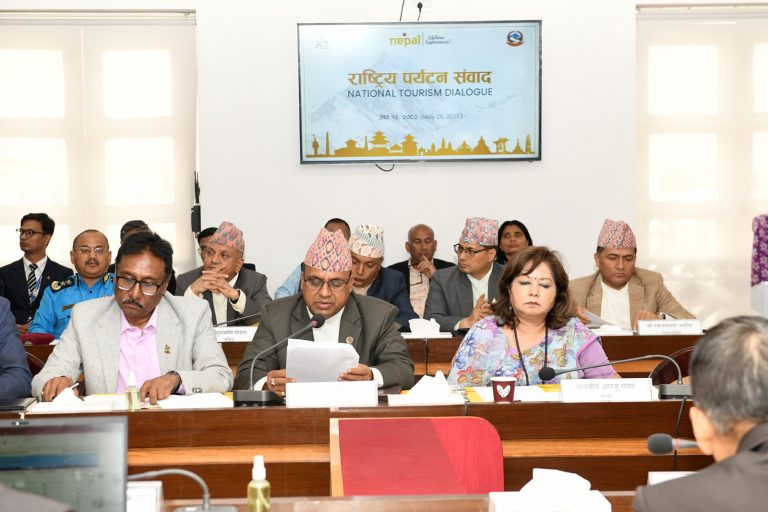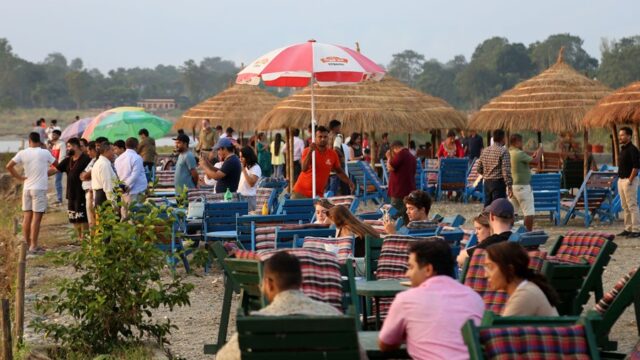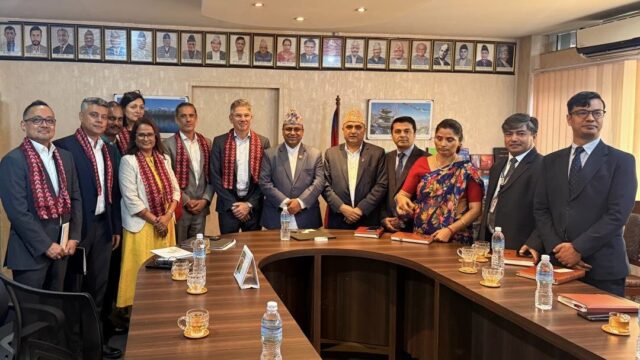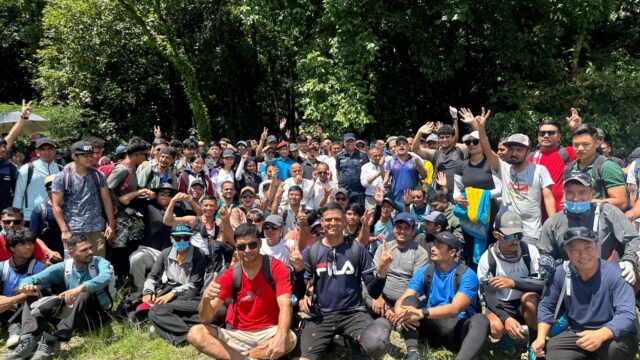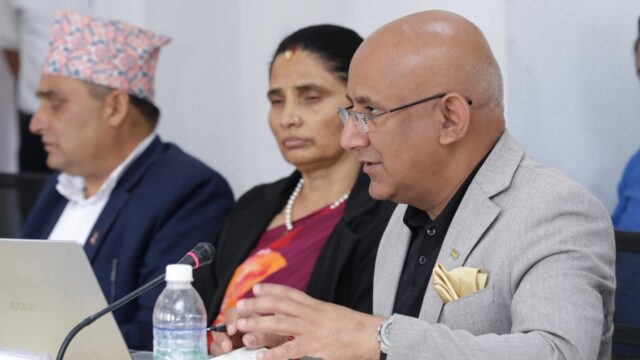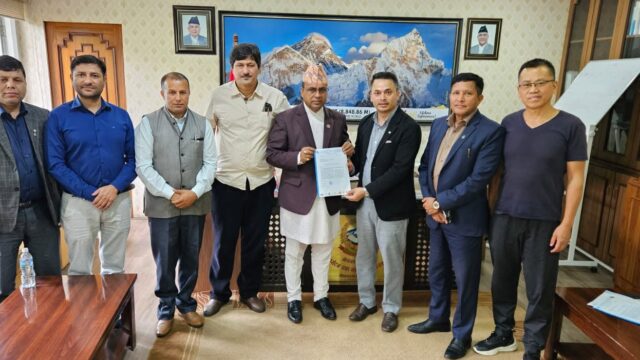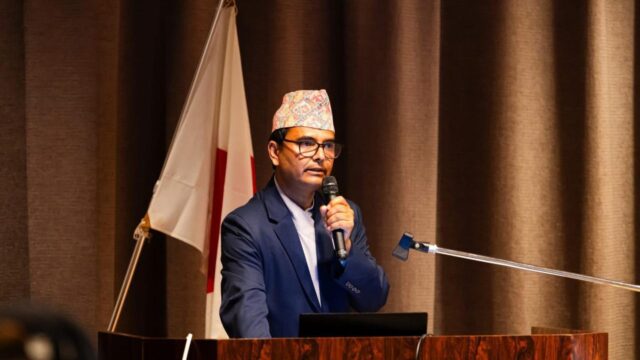The National Tourism Dialogue 2025 was successfully held on May 26 at the Office of the Prime Minister and Council of Ministers in Singha Durbar. The high-level event was jointly organized by the Ministry of Culture, Tourism and Civil Aviation and the Nepal Tourism Board (NTB), with the special presence of the Right Honourable Prime Minister KP Sharma Oli.
The dialogue brought together government leaders, provincial representatives, private sector stakeholders, and tourism experts to discuss coordinated strategies to address pressing challenges and unlock Nepal’s tourism potential.
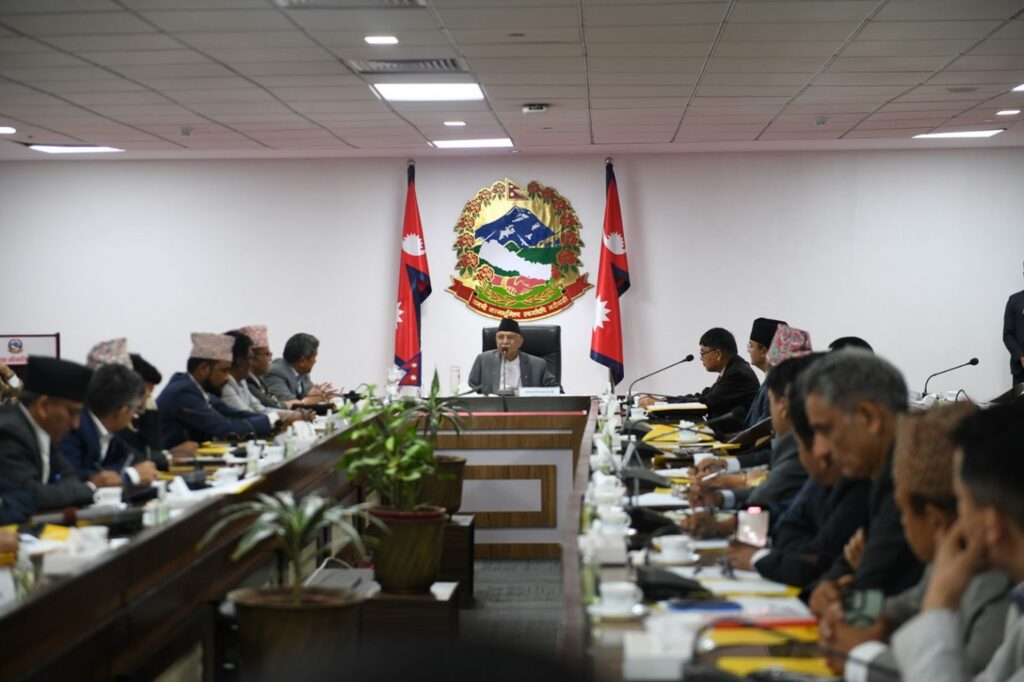
Prime Minister Calls for Urgent Action
Delivering the keynote address, Prime Minister Oli acknowledged the strides made in the tourism sector but underlined the urgency of doing more to meet evolving demands. “It is not that no work has been done, but there is still a great deal to accomplish. We must act,” he remarked. He emphasized Nepal’s growing connectivity, noting that once-remote villages are now accessible due to improved road infrastructure.
Prime Minister Oli also highlighted the need to streamline administrative processes in tourism development, promotion, and publicity. He announced the government’s intention to restructure Nepal Airlines Corporation and pledged that systems should be designed to facilitate tourists, not obstruct them.
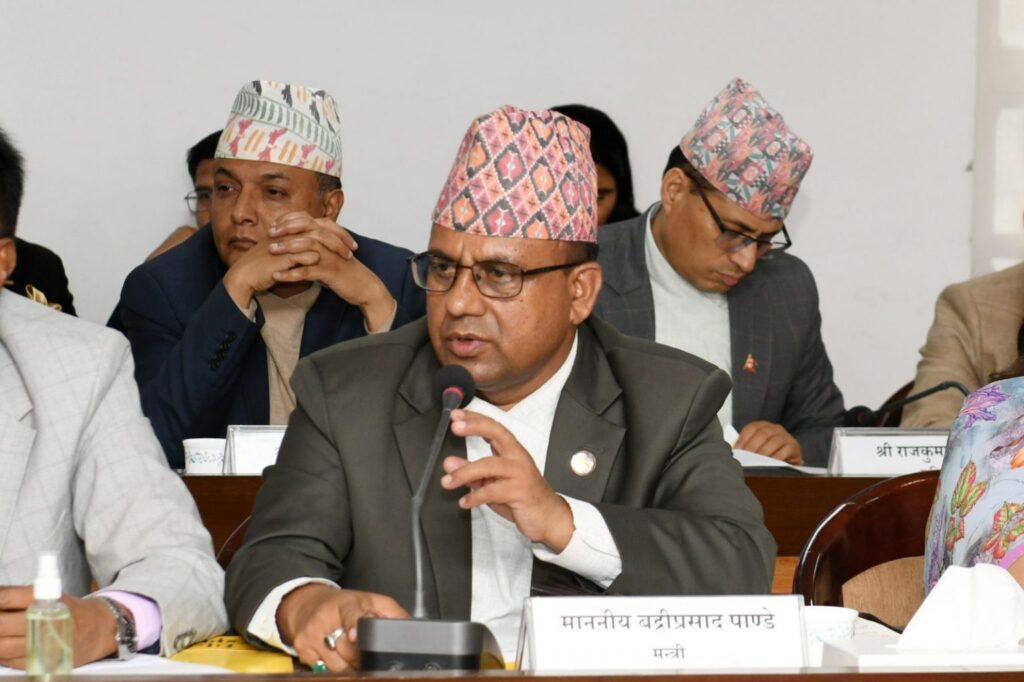
Policy Reform and Targeted Strategies Needed
Hon. Badri Prasad Pandey, Minister for Culture, Tourism and Civil Aviation, stressed the need for targeted strategies to address issues such as manpower shortages, weak policy implementation, and fragmented investment. “It is the backbone of Nepal’s economic prosperity,” he said, noting the vital roles of both government and private sector players.
NTB CEO Mr. Deepak Raj Joshi presented a working paper titled “Uncovering Nepal’s Tourism Potential,” which outlined legal and policy bottlenecks and recommended strategies to attract tourists from large markets such as China and India. He reiterated Nepal’s unique offerings in nature and cultural tourism.
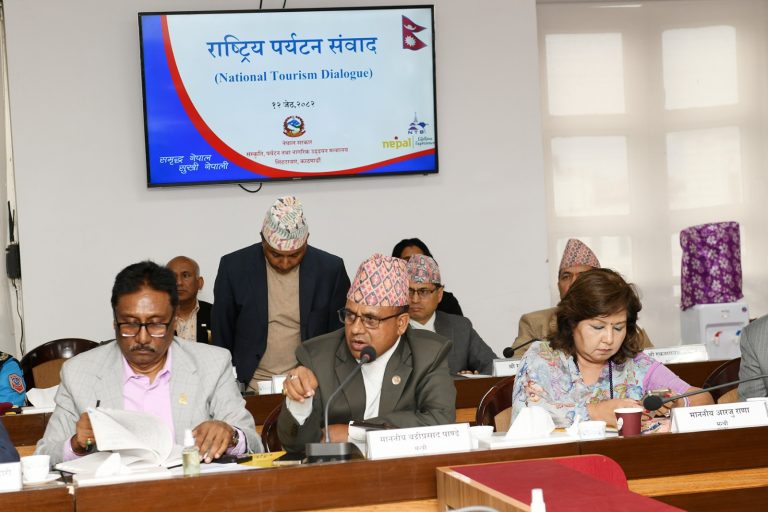
Inter-Ministerial Commitments
Seven federal ministers, including Minister Pandey, joined the event to highlight inter-sectoral commitments. Hon. ICT Minister Mr. Prithvi Subba Gurung advocated for lifting restrictions on foreign airlines to boost air connectivity. Hon. Home Minister Ramesh Lekhak prioritized peace and security as essential pillars for tourism growth.
Labour Minister Sharad Singh Bhandari reaffirmed support for tourism-focused private enterprises, while Foreign Minister Dr. Arzu Rana Deuba discussed diplomacy and the need for a tourism master plan across all seven provinces. Transport Minister Devendra Dahal committed to road and facility upgrades, and Environment Minister Ain Bahadur Shahi emphasized promoting eco-tourism through reforms in protected areas.
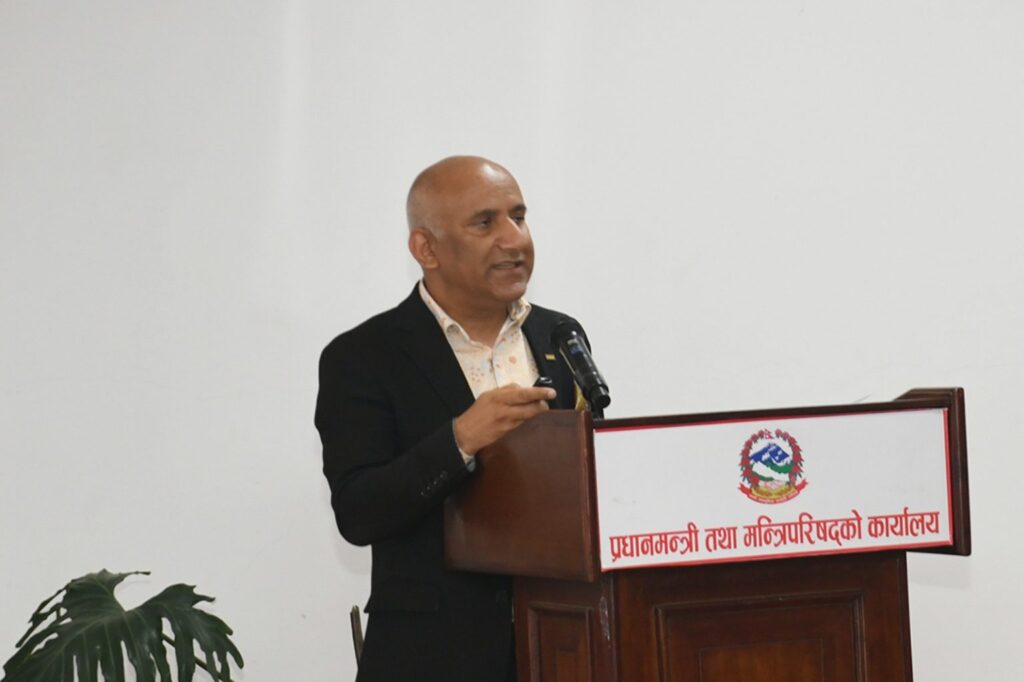
Provincial Perspectives
Tourism ministers from Gandaki, Koshi, and Lumbini provinces shared their regional priorities. Hon. Mitra Lal Basyal of Gandaki called for decentralization in company registration and rescue services. Hon. Sadananda Mandal of Koshi stressed the importance of inter-provincial air connectivity, and Hon. Prachanda Bikram Neupane from Lumbini pushed for improved border infrastructure.
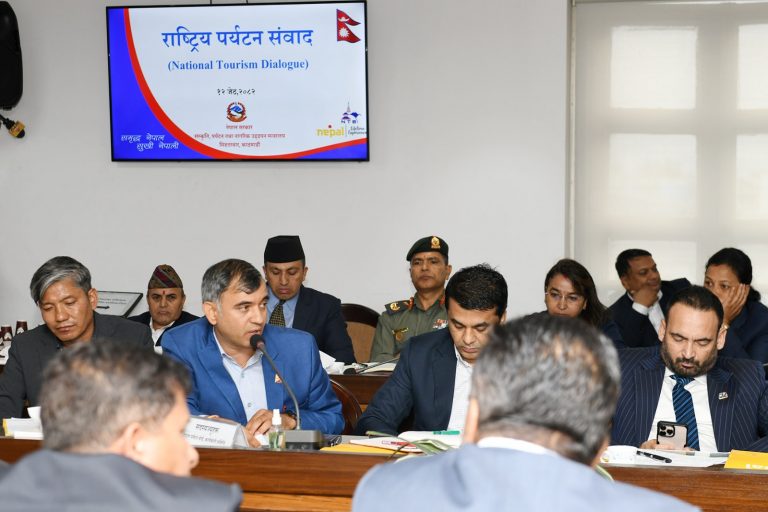
Investment and Infrastructure Initiatives
Mr. Sushil Gyawali, CEO of the Investment Board Nepal, revealed plans for a Pokhara–Muktinath cable car project, while acknowledging the slow pace of air service expansion. Chief Secretary Mr. Ek Narayan Aryal proposed identifying at least one flagship destination in each province to spur growth.
Dr. Yubaraj Khatiwada, Prime Minister’s Economic Advisor, highlighted the strategic value of enhancing road networks in the Terai region, citing large populations and untapped potential.
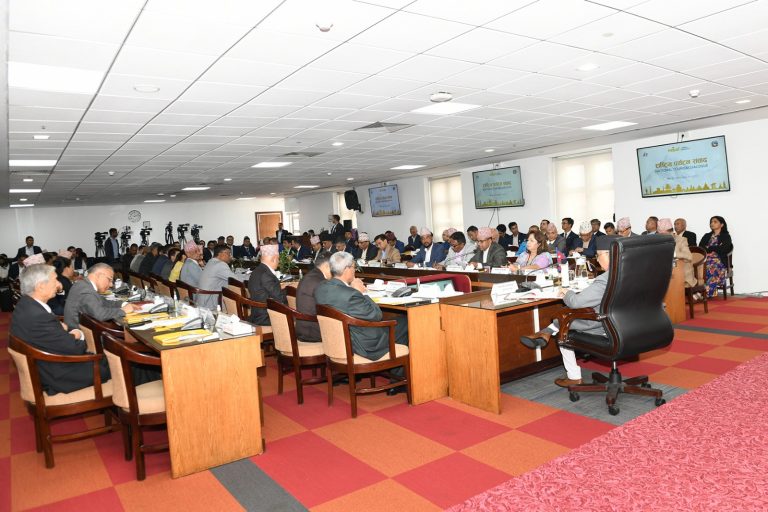
Private Sector Advocates Reforms
The private sector was actively engaged, offering a range of practical reform suggestions:
- Mr. Kumarmani Thapaliya (NATTA) proposed VAT exemptions, a dedicated tourist bus park, and flexible aircraft policies.
- Mr. Sagar Pandey (TAAN) advocated for opening the Korala border and strengthening Nepal Airlines.
- Mr. Binayak Shah (HAN) highlighted the rise of eco-tourism, calling for hotels to adopt electric vehicles and kitchens, and raised concerns over human resource shortages.
- Mr. Manoj Karki (Airlines Operators Association) underscored the importance of improving air and road connectivity.
- Mr. Nima Nuru Sherpa (NMA) criticized high climbing permit fees and called for a one-door system in mountaineering services.
- Mr. Chandra Dhakal (FNCCI) highlighted issues at border points and in cash transactions, emphasizing the need for a more enabling policy environment.
- Mr. Dipendra Purush Dhakal, former tourism secretary, stressed the need to remove Nepal from the EU aviation blacklist and improve air service quality.
- Mr. Rishi Bhandari, NTB Executive Committee member, called for comprehensive reforms and stronger cooperation across sectors.
A Roadmap for the Future
As the event concluded, all stakeholders echoed a shared vision for a competitive, inclusive, and sustainable industry. The NTB reaffirmed its commitment to collaborative efforts with federal and provincial governments, private stakeholders, and development partners.
The National Tourism Dialogue 2025 marks a pivotal step toward revitalizing Nepal’s tourism sector and building a more resilient foundation for the future.
